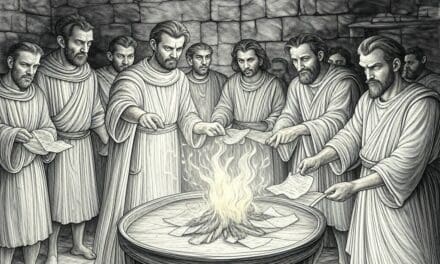Key Teachings of Bible Authors
Discover the core messages from Old and New Testament authors
Grok anylized every author of the bible to decide what teaching were most important to each, based off of what they wrote and how much they focused on it.
Old Testament Authors
Moses (Pentateuch: Genesis, Exodus, Leviticus, Numbers, Deuteronomy)
Focuses on laws, history, covenants, and journeys.
- Obedience to God’s commands and laws as the key to blessing and relationship with Him.
- God’s covenant and special relationship with Israel, including promises and deliverance from slavery.
- The origins of the world, humanity, and Israel’s identity through creation and patriarchal stories.
Joshua (Book of Joshua)
Emphasizes conquest, faithfulness, and division of land.
- Faithful obedience to God leads to victory and inheritance of promised land.
- The importance of courage and trust in God’s promises during challenges.
- Remembrance of God’s past deeds to inspire future loyalty.
Samuel (Judges, Ruth, 1 Samuel)
Focuses on leadership transitions, cycles of sin, and redemption.
- Cycles of rebellion against God leading to oppression, followed by deliverance through judges or leaders.
- The need for godly leadership and rejection of human kingship without divine guidance.
- Personal faithfulness and redemption in everyday life, as seen in family stories like Ruth.
Jeremiah (1-2 Kings, Jeremiah, Lamentations)
Heavy emphasis on judgment, prophecy, and calls to repentance.
- Warning against idolatry and unfaithfulness, leading to divine judgment and exile.
- The promise of restoration and a new covenant after repentance.
- Lament over destruction and the need for heartfelt sorrow for sin.
Ezra (1-2 Chronicles, Ezra)
Chronicles history with a priestly perspective on worship and restoration.
- The importance of temple worship and obedience to God’s law for national revival.
- God’s sovereignty in history, from creation to exile and return.
- Rebuilding community and faithfulness after exile.
Nehemiah (Nehemiah)
Centers on rebuilding and reform.
- Rebuilding physical and spiritual walls through prayer, leadership, and community effort.
- Confession of sins and renewal of covenant with God.
- Protection against opposition through reliance on God.
Mordecai (Esther)
Story-driven focus on providence and survival.
- God’s hidden providence in protecting His people from destruction.
- Courage and self-sacrifice for the greater good of the community.
- Celebration of deliverance through festivals like Purim.
Job (Job)
Dialogues on suffering and divine wisdom.
- The mystery of suffering and the need to trust God’s wisdom over human understanding.
- Integrity in faith despite trials and accusations.
- God’s sovereignty and the limits of human knowledge about divine purposes.
David (Many Psalms)
Poetic expressions of praise, lament, and trust.
- Praise and worship of God in all circumstances, including thanksgiving and adoration.
- Personal repentance, seeking forgiveness, and reliance on God’s mercy.
- Trust in God’s protection and deliverance from enemies.
Solomon (Proverbs, Ecclesiastes, Song of Solomon)
Wisdom literature on life, relationships, and meaning.
- Practical wisdom for daily living, emphasizing fear of the Lord as the start of knowledge.
- The vanity of life without God, urging enjoyment of simple joys under divine sovereignty.
- The beauty and sanctity of marital love and intimacy.
Isaiah (Isaiah)
Prophetic visions of judgment, salvation, and messianic hope.
- God’s holiness and judgment on sin, calling for repentance.
- Promise of a suffering servant and future restoration for Israel and nations.
- Comfort and hope in God’s ultimate redemption.
Ezekiel (Ezekiel)
Visions of glory, judgment, and restoration.
- The glory of God departing due to idolatry, but returning in restoration.
- Personal responsibility for sin and the need for a new heart.
- Symbolic acts warning of judgment and promising renewal.
Daniel (Daniel)
Stories and visions of faithfulness in exile.
- Faithfulness to God in hostile environments leads to divine protection.
- God’s sovereignty over earthly kingdoms and future empires.
- Apocalyptic visions of end times and resurrection.
Hosea (Hosea)
Uses marriage metaphor for Israel’s unfaithfulness.
- God’s enduring love despite Israel’s spiritual adultery.
- Call to repentance and rejection of idolatry.
- Promise of restoration and healing after judgment.
Joel (Joel)
Focuses on locust plague as judgment and future day.
- The coming “day of the Lord” as judgment and salvation.
- Call to repentance and fasting for divine mercy.
- Outpouring of God’s Spirit on all people.
Amos (Amos)
Prophecies against social injustice.
- Judgment on social injustices like oppression of the poor.
- Rejection of empty rituals without true righteousness.
- Promise of restoration for a faithful remnant.
Obadiah (Obadiah)
Short oracle against Edom.
- Judgment on pride and betrayal against brother nations.
- God’s deliverance for Israel and possession of lands.
- The day of the Lord bringing justice to all nations.
Jonah (Jonah)
Story of reluctance and mercy.
- God’s mercy extends to all nations, even enemies.
- The futility of running from God’s call.
- Repentance leads to forgiveness, regardless of background.
Micah (Micah)
Balances judgment and hope.
- Judgment on corruption and false prophets.
- Call for justice, mercy, and humility before God.
- Promise of a future ruler from Bethlehem bringing peace.
Nahum (Nahum)
Oracle against Nineveh.
- God’s vengeance against oppressors like Assyria.
- Comfort for the oppressed through divine justice.
- The goodness and refuge of God for those who trust Him.
Zephaniah (Zephaniah)
Day of the Lord prophecies.
- Sweeping judgment on sin for Judah and nations.
- Call to seek the Lord for shelter.
- Restoration and joy for the humble remnant.
Haggai (Haggai)
Urges temple rebuilding.
- Prioritizing God’s house over personal comfort.
- Obedience brings blessing and prosperity.
- God’s presence returning to the temple.
Zechariah (Zechariah)
Visions and oracles of restoration.
- God’s jealousy for Jerusalem and return to bless it.
- Messianic promises of a pierced one and future king.
- Call to justice and truth in community.
Malachi (Malachi)
Rebukes formalism and promises messenger.
- Critique of insincere worship and corrupt priests.
- Faithfulness in tithing and marriage.
- Coming day of refinement and Elijah’s return.
New Testament Authors
Matthew (Gospel of Matthew)
Emphasizes Jesus as Jewish Messiah.
- Jesus as fulfillment of Old Testament prophecies and king of the Jews.
- Teachings on the kingdom of heaven, including ethics like the Sermon on the Mount.
- Discipleship and mission to all nations.
Mark (Gospel of Mark)
Fast-paced narrative on Jesus’ ministry.
- Jesus as the suffering servant and Son of God.
- Urgency of the gospel and call to follow despite cost.
- Miracles demonstrating authority over evil and nature.
Luke (Gospel of Luke, Acts)
Historical accounts with focus on marginalized.
- Jesus’ compassion for the poor, outcasts, and women.
- Salvation history from Jesus’ birth to the spread of the church.
- Role of the Holy Spirit in empowering witnesses.
John (Gospel of John, 1-3 John, Revelation)
Theological emphasis on divinity and love.
- Jesus as the divine Word and Son of God, offering eternal life.
- Love as the core command: love God and one another.
- Apocalyptic victory of Christ over evil, with warnings to persevere.
Paul (Romans, 1-2 Corinthians, Galatians, Ephesians, Philippians, Colossians, 1-2 Thessalonians, 1-2 Timothy, Titus, Philemon)
Doctrinal letters on faith, church life, and conduct.
- Justification by faith alone, not works, through Christ’s death and resurrection.
- Unity and conduct in the church body, addressing divisions and ethics.
- Hope in Christ’s return and living holy lives in anticipation.
James (James)
Practical wisdom on faith in action.
- Genuine faith proven by works, especially caring for others.
- Controlling the tongue and avoiding favoritism.
- Perseverance through trials with wisdom from God.
Peter (1-2 Peter)
Encouragement amid suffering.
- Hope in salvation and living holy as exiles.
- Submission to authorities and suffering like Christ.
- Warning against false teachers and end-time scoffers.
Jude (Jude)
Short warning on apostasy.
- Contending for the faith against false teachers.
- Examples of judgment on unbelief.
- Building up in faith and mercy toward doubters.
Unknown (Hebrews)
Sermon-like on Christ’s superiority.
- Christ’s superiority to angels, Moses, and old covenant.
- Perseverance in faith to enter God’s rest.
- Priesthood of Christ offering better sacrifice.






